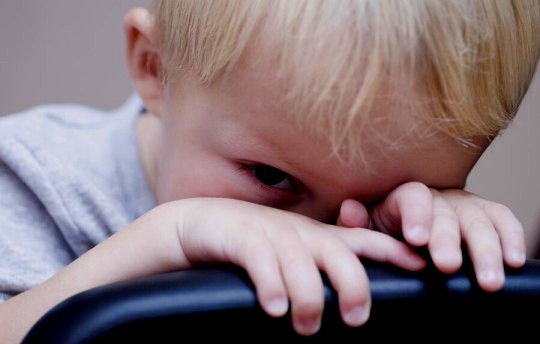Being uncomfortable at social situations or taking time to adjust to a new surrounding can be seen as a reluctance to connect with others. This can be described as ‘shyness’ in children in general. People often mistake this as ‘bad’ child’s behaviour. As a parent, you must encourage your child to be brave and try new things. However, you must also keep in mind not to push too hard. Shyness is not a bad thing, and it can most definitely be conquered.
What is shyness?
Each person has an individual temperament. They are born with it. Temperament determines the way a person reacts with their surroundings. Shyness, too, is a temperament.
Shy children may find it uncomfortable to handle social interactions. Shyness doesn’t fade out over time. A conscious effort is required to overcome this type of child’s behaviour.
How shyness affects a child’s behaviour and growth?
The quality of growth can be hampered due to excessive shyness in children in the following ways:
• Shortcomings in participating in regular fun activities like sports, dance and music and practicing social skills;
• Having fewer friends;
• The tendency to feel loneliness and unimportant leading to low self-esteem;
• Fear of failure and being judged;
• Shyness manifesting itself physically and causing trembling, stammering and anxiety.
Can shyness have any positive effects?
As strange as it may sound, shyness has some positive aspects in it that affect child’s behaviour positively:
• Performing well at school;
• Heightened concentration;
• Not getting into trouble and quarrels;
• Being easy to look after;
What should your attitude be while interacting with them?
• A parent is the first teacher in any child’s life. Often, the child imitates the things they see. Therefore, you must live up to the influential position you’ve been put on by your child.
• Avoid any labelling of your child as ‘shy’. Do not let others label the child as ‘shy’, and certainly, do not do it yourself. Children tend to stick to their ‘pre-defined’ labels as they grow up.
• Always adopt a warm, nurturing and supportive condition while addressing their shortcomings. Please refrain from discouraging them or using a mocking tone.
• Tell your child stories of about a time when you were shy yourself. Mention the problems you faced and the steps you took to overcome them. Make your experiences relatable to theirs.
• Encourage them to be vocal about their concerns.
• Be outgoing yourself, and your child will follow suit.
Which professional help would you go to if you need guidance?
Sometimes, shyness can be overwhelming for the parent. If it is that intense and debilitating then:
• Applying for counselling sessions from a registered counsellor.
• Relaxation techniques and stress management from a psychologist.
• Sessions with a registered social skill trainer/developer.
We at Tribeca Care can provide you with all the help you need regarding counselling and managing your child’s behaviour. Contact us at: at: 03340277777 / 8017770323 or email us at: enquiry@newwpsite.tribecacare.com. Visit our page at: www.tribecacare.com.

